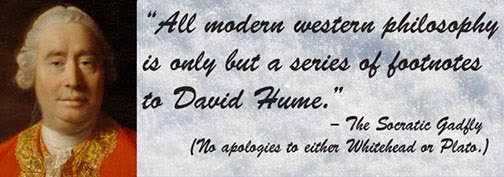I mentioned two weeks ago that I had a "secular spiritual experience" that, in part, involved the most famous logion from the Gospel of Thomas.
Shortly before I saw the standing dead ponderosa pine tree with sprout of whatever growing inside, I saw what I called a "namaste" rock, while hiking high on the east side of the San Juan Mountains. It reminded me of a similar rock at Middle Emerald Pool in Zion National Park, seen deliberately on a second visit. With both visits, I made "photo posters" in Photoshop of one of the better-known quotes of the Buddha, both shorter version and long version. Here's one of the photo posters, with longer version.
And, here's the new namaste rock from the most recent trip.
Finally, the short version of the quote, from the last visit I made to Zion:
First, note that I called it a "SECULAR spiritual experience." "Spiritual experience" by itself is too open to misinterpretation and I don't want to look like a pseudo-secularist, as I perceive Barbara Ehrenreich as being.
Related to that? I invented a new word. I can't remember if it was at that moment, but it was before that hike ended. It's "humaste," a totally secular alternative to "namaste."
Now, to the meat of the header.
Jesus is, of course, asked the summary of the Torah, and he famously quoted two passages from the Torah, Deuteronomy 6:5, after the Shema in 6:4, and Leviticus 19:18 (Mark, here):
Love the Lord your God with all your heart and with all your soul and with all your mind and with all your strength.’ The second is this: ‘Love your neighbor as yourself.’ No other commandment is greater than these.”
The context beyond that?
Mark 12 just thrust it into a group of brief sayings that portray Jesus being religiously tested. Matthew 22 has it in the same context, but with the parable of the wedding banquet, Q material, leading off the chapter. Luke 10 totally reframes it. It occurs at an early part of Jesus' ministry, and has neither the wedding banquet nor any of the other Markan material. Instead, it's all "Gentile mission" stuff, as the chapter starts with the "mission of the 70" and ends with Jesus pivoting from his answers to a didactic story, similar to a pronouncement story, to explain who a "neighbor" is. You know that as "The Good Samaritan," and Samaritans are picked not to shame a Jewish audience, since Jesus never told such a story in reality, but as further justification for a Gentile mission and pivot.
Within the Tanakh, I already noted the context of the "first commandment of love." The second is the summation of a set of divarim which somewhat parallel the 10 famous ones in Exodus and Deuteronomy. The parallel is partial because the set in Leviticus focus entirely on interpersonal relationships, albeit with Yahweh hovering in the background, and have no human-divine commands or warnings.
Finally, of course, there's Paul's famous chapter on love, 1 Corinthians 13.
What's missing in all of those is what's front and center in the Buddha's words. (I'll assume he actually said them.)
The concept of self-love, and even more, the need for self-love and the need for people to be reminded of this.
Christians talk about how Jesus came to save a broken world.
If you accept the concept of "broken world" but reject ideas of "original sin," or of older Jewish ideas for sacrifice, the Buddha is juxtaposed in something like this as trying to heal and nurture a broken world. (This is setting aside the metaphysics that Buddhism as a religion incorporated from pre-Hindu Indian Epic religion, and setting aside the issue of how much the Buddha himself bought into that.)
And, contra Christians who talk about Jesus' love, and focusing on this world as well as the next? The Buddha focuses on this world first, even if he did buy Indian Epic metaphysics.
That's even more true on trumping Paul. Paul, the apostle of abnegation, writes an allegedly beautiful chapter, but it's all about abnegating (and at times blind) love, and arguably rejects self love in verse 5:
It is not rude, it is not self-seeking
The Buddha would beg to differ on the "not self-seeking." In fact, I think he'd actually, per Zen, say "mu" to Paul's whole angle, not just in the verse but the chapter.
As for the Leviticus 19 background, the Buddha probably would say, to riff on Robert Frost, that good self-love makes good neighboring.
As for Deuteronomy 6? It eventually gets to the "jealous god" that heads up the Jewish version of the Ten Divarim. Enough said there.
==
Footnote: I've said repeatedly that Buddhism is a religion. Backgrounding the parenthetical expression above, per my take on the Diamond Sutra, I think Siddhartha himself was indeed a metaphysician. Once again, Bob Wright is wrong.




No comments:
Post a Comment